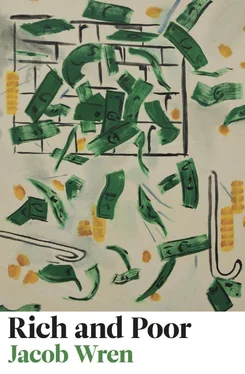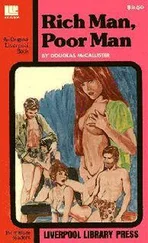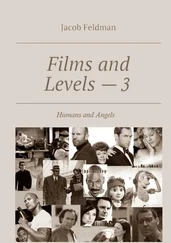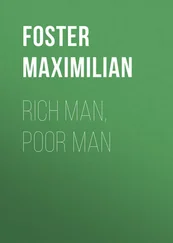I was carefully scanning the room, or at least as carefully as I could considering I’d already had quite a bit to drink, making a mental note of each face, but mainly focusing on those who seemed a bit too relaxed, who were taking the whole thing in stride. These were not poker faces, I remember thinking at the time, not some calm exterior covering up a world of inner turmoil. These were people utterly convinced that, when all was said and done, they would come out ahead, in fact convinced the crash was the best possible thing that could happen to them, that when everything is given a good shake, some people lose while others take, each and every one of them certain they would be the one taking the most.
I was memorizing each of their faces because I wanted to know, to check later, when things had calmed down, whether each of these men were overconfident or accurate in their predictions. When I got back to the office I made a list, wrote down each of the names I could remember and left it on my desk, glancing down at it every few days as the chaos swirled around me, as we debated which divisions to sell off and if there were any that had to be shut down altogether. We came out the other end okay, but I realized so many others had done better, seized the opportunity more fully. A crash is a chance to expand, and yet we shrank ever so slightly, telling me I had done something wrong, hadn’t been fast enough.
And then I would look at the list on my desk. Almost every name on it had done better than me. Had they been prepared from the start? Or anticipated the calamity before me? Had the attack shaken my instincts, distracted me, made me less effective at the very moment the organization needed me most? Was I simply drinking too much? Or drinking too much in direct response to the attack? Then there was the question of who got how much in bailout cash. We lobbied with calm determination but so many others got more. And yet, since everyone knew the official numbers were nowhere close to reality, the question of who got what was an endless source of speculation. I heard a rumour that we got twice as much as everyone else put together. This is clearly untrue and strikes me as verging on slander. We did poorly in the shakedown and then, behind our backs, people were saying we did twice as well. I couldn’t think of any of this without fearing, almost to the point of panic, that I had lost my touch. In some ways, I became obsessed with these men who came out the other side far richer than they went in. It was unlike me to obsess over other people’s business. In the past I’d always remained productively, almost myopically, focused on my own, on the task at hand. This was a change for the worse.
2.
I went to the field every day, never quite working up the courage to climb onto a bus, and though in many ways being here calmed me, when I thought about recent events, or about coming here, or about anything, mainly I felt depressed, or worse than depressed, devastated. So I tried not to think and instead only to listen, throwing my energy into what I might learn from these people I would most likely never see again. I talked to worker after worker, from different countries, different worlds, all here to make some cash then drift back home. And the more we spoke, the more I listened, the more I became obsessed with the word ‘pesticides,’ since symptoms and illnesses kept being mentioned. They would show me rashes on their hands, face or neck, demonstrate a rasping cough that wouldn’t go away, or ask me to look into their eyes, often red and irritated, worry in their voices that if they kept going perhaps they’d end up half-blind.
I thought about food and poison, how strange it was to find them together in field after field, crop after crop. This society, this culture, has a death wish, I thought as I listened to these illness stories. (My mind had a particularly dark cast at that time.) A death wish that takes the form of cancer, of workers whose lives are shortened by their work, of hiding the elderly away in homes where no one can see them. What we don’t want to look at, we think we don’t have to deal with, and then it owns us completely. Cancers from the food we eat and the water we drink, from the computers under our fingers and the cell phones pressed against our heads. What is cancer but cells that will not stop growing, infinite growth in a finite world? I wasn’t thinking straight, unhinged by the delirium of recent events, but it did seem reasonable to me that harvesting fruits and vegetables shouldn’t make you feel sick.
But poison wasn’t the only, or even main problem here. These people were expendable and they knew it. They needed the money but the employers didn’t need them. The field held an endless supply of workers, the buses came and went, filled and emptied. Whoever could get to the bus first would win the salary for that shift, depending on how much they could get into their basket, yet it all seemed as arbitrary as a storm. I liked these people, liked coming to talk to them every day, how they were completely lost, with no hope but much time, or at least they had a great deal of time if they weren’t one of the lucky ones to make it onto the bus on that particular day. And I was also completely lost. I had slightly more options than these workers, but definitely not more hope. There wasn’t much food and almost no alcohol, but what they had, they shared. I was probably idealizing them far too much. But here in the encampment I just couldn’t be critical, couldn’t think anything bad about them. It felt so much better here than anything I had left behind.
One night, as I was walking home, my phone rang. I had forgotten I even had a phone in my pocket, and was surprised it still worked. On the other end of the line I found Emmett. He wanted to know if I had inserted the virus into the system yet. I realized that when I had last spoken to him, on the bus, I’d been too drained, too depleted, to explain what had happened, to explain that I no longer worked there. Now, slowly, getting lost several times along the way, I tried to explain everything: the piano wire, the elevator, my wrists, the gauze, the bus, the field. It took a while before he fully understood, and then he was furious. As I slowly walked back towards the hotel, he yelled at me for at least an hour. I had never before been on the receiving end of such anger and vitriol. He’d had a foolproof plan to bring down the entire organization, and I’d squandered it on some paltry, piano wire attempt to bring down just one man.
I had no idea why I didn’t hang up on him. For some reason I wanted to hear what he had to say, take his lashes and see what happened. He was now attacking me the same way as, back when he worked for them, he had once attacked the world. He yelled at me like he wanted me dead, like with every word, every insult, he wanted to kill me. And I thought how powerless he had become, yelling at me as I strolled home through the gentle twilight, how there was a time in his life when he would say things, give orders, and people might actually end up dead or injured — for example, workers trying to unionize in some far-off backwater, much like where I grew up — and now he had nothing better to do with his time than yell at me, someone even more powerless than he was. He was calling me a shit-assed idiot cocksucker and for some reason I started laughing. It seemed so ridiculous, his furious yelling and the fact that it all felt so far away, a hundred lifetimes ago, that now I basically couldn’t care less. I interrupted him.
Me: You waited too long. You should have confided in me sooner.
Him: What?
Me: If you wanted me as an ally, if you wanted my help, you had to bring me on board sooner. I didn’t know. I had my own plan and it seemed good enough at the time. I didn’t know about your plan. You can’t have allies if you keep them in the dark.
Читать дальше












